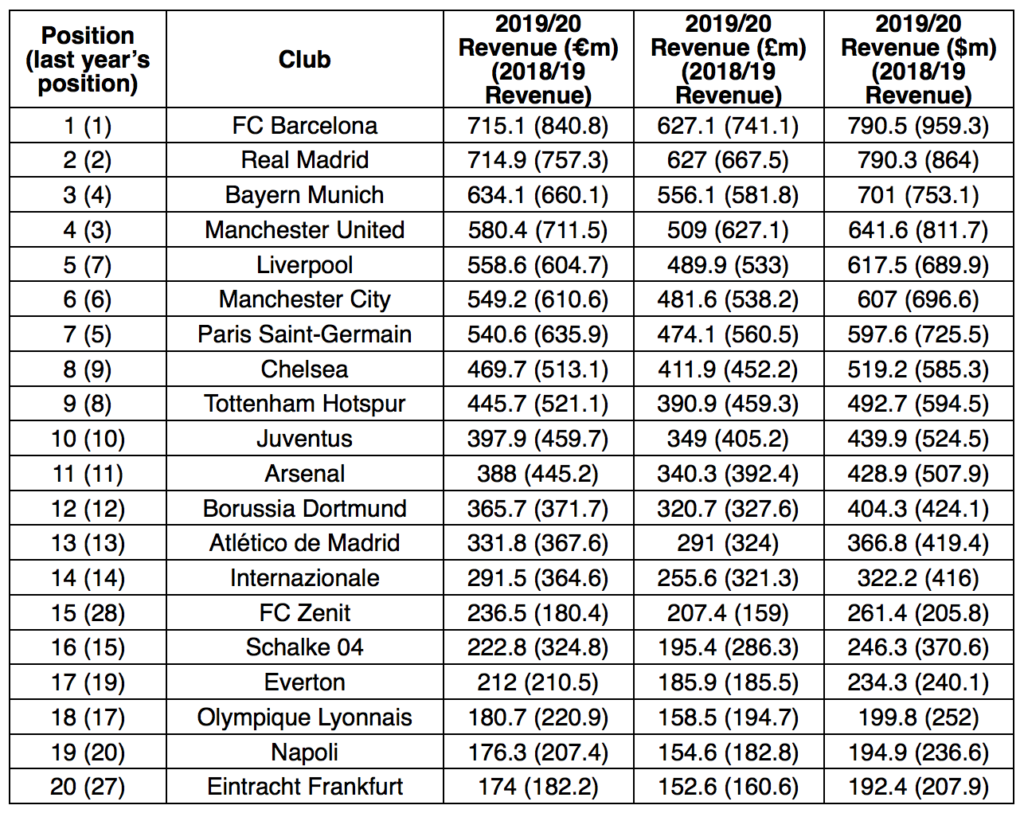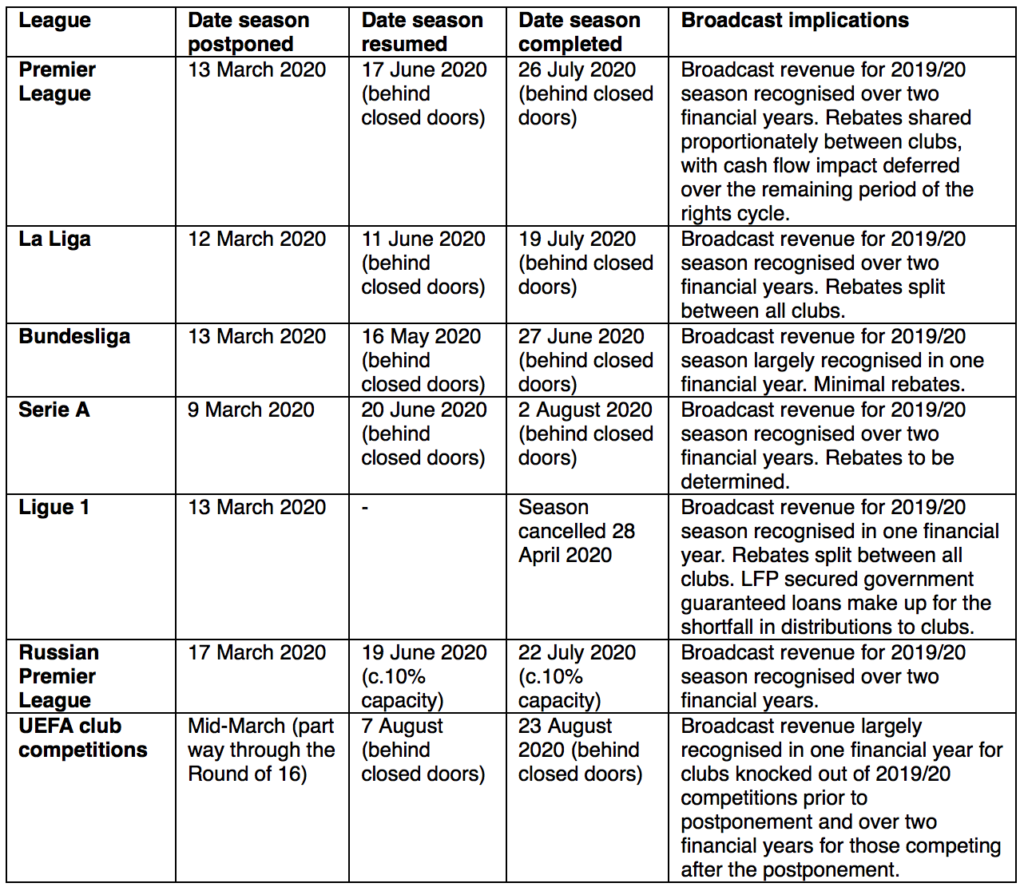By David Owen
January 26 – Revenues at Europe’s Top 20 clubs were down 12% in 2019-20 as covid began to disrupt the industry, according to the latest Football Money League produced by Deloitte, the professional services firm.
The new analysis found that aggregate income reached just €8.2 billion, versus €9.3 billion in 2018-19. The bulk of this reduction was attributed to a €937 million cut in broadcast revenue. This was supplemented by a €257 million fall in match-day revenue, offset by a €105 million improvement in commercial income.
Deloitte is now forecasting that the Top 20 clubs will have missed out on revenue of more than €2 billion by the end of the present season. According to Dan Jones, partner in the firm’s Sports Business Group: “The full financial impact of covid-19 may not be realised for years to come, with continued uncertainty forcing existing and potential broadcast and commercial partners to consider their investment into sport.”
This annual exercise paints only a limited picture of the full impact of the pandemic on football finances, since it examines only top-line performance. Most top-division clubs, even in Europe’s big leagues, look set to post substantial losses for 2019-20; some already have.
The crisis has also put in question clubs’ capacity to finance their way through current difficulties and, hence, breathed new life into the European Super League idea, to the horror of FIFA and UEFA whose own multibillion-dollar football tournament businesses would almost inevitably be disrupted by such a behemoth.
The new Deloitte rankings do nothing to demolish the notion of an untouchable elite being formed at the pinnacle of the club game. The Top 14 clubs are the same as the prior season, with some minor adjustments in rankings.
There is then a more than €50 million gap before the 15th-ranked club. This is Russia’s FC Zenit, who have surged up the rankings from 28th place. As explained in the small print, however, Zenit’s rise is attributable in part to the anomaly of its end-December financial year-end. This meant that its revenues for the purposes of this exercise were “largely unaffected by the pandemic”, unlike other clubs which use a May or June financial reporting date.
According to Deloitte, the only other club to see an increase in revenue compared with 2018-19 was Everton. This has coincided with former Arsenal investor Alisher Usmanov appearing to take a growing interest in the Merseyside club’s affairs. The club seems to be trying to buy its way into the Premier League’s elite. There is a new stadium project in the offing and pre-tax losses have exceeded £100 million in each of the last two seasons. http://www.insideworldfootball.com/2020/12/15/everton-post-second-consecutive-100m-plus-pre-tax-loss/
Source: Deloitte
Contact the writer of this story at moc.l1745178540labto1745178540ofdlr1745178540owedi1745178540sni@n1745178540ewo.d1745178540ivad1745178540



